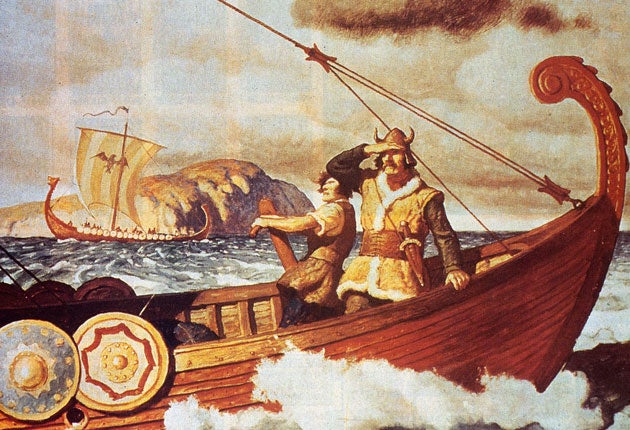Why even the fiercest Viking warrior steered clear of Scotland
Icelandic sagas carried a warning for Norsemen

The Viking reputation as bloodthirsty conquerors has endured for more than a millennium but new research shows that some Norsemen approached these islands with more than a little trepidation.
Uppermost in the minds of the Icelandic merchants weighing anchor off Scotland in the Middle Ages were the ferocious reception they expected from hostile locals, dangerous landings, the incomprehensible language and the terrible weather (very foggy).
Advice handed down to Norse travellers in the 13th century warns those making the journey to Scotland that they did so at their own peril. A new analysis of the classic Icelandic Sagas (Islendingasagur) has unearthed the following counsel: "Icelanders who want to practise robbery are advised to go there ... but it may cost them their life."
Another tells of a Scot identified as Grjotgard, a kinsman of Melkolf, king of Scotland (Malcolm II). His flotilla of 13 vessels bristling with fierce, angry-looking warriors intercepted a party of arriving Icelandic traders in a western sea loch: "You have two choices. You can go ashore and we will take all your property, or we'll attack you and kill every man we lay our hands on," the Scot warned them.
The chronicles set down on yellowed calf vellum eight centuries ago have been reinterpreted by Gisli Sigurdsson, a historian at Reykjavik University, who suggests that the ancient Norse were more tentative than other accounts suggest, especially when it came to contact with the Scots.
Though written down in the 13th century, the part-fact, part-fiction accounts based on the travels of the leading Icelandic families pertain to a period 200 years earlier.
At the height of their power the Scandinavian seafarers claimed Orkney, Shetland, Iceland and Greenland as their own. They had also established powerful colonies in mainland Scotland, England, Ireland, France, North America and Russia.
At this time the Scots were fighting off the Norman kings of England as well as coping with the bitter struggles of their own clans. But as their sphere of military influence grew, the Norse became more interested in trading than fighting. They were not always met with open arms, according to Mr Sigurdsson. "The only places the Norse expected a safe reception was Orkney and Shetland, where the people were basically like them and where they would be greeted as kin," he said. They were particularly nervous in the western sea lochs then known as the "Scottish fjords". The Vikings were also wary of the Gaels of Ireland and west Scotland and the inhabitants of the Hebrides.
Orkney historian Tom Muir said the raiders typically preyed on easy targets such as monasteries but the trouble was not all one way: "The truth is there were raids both ways and the Norse had every reason to fear Celtic neighbours."
Join our commenting forum
Join thought-provoking conversations, follow other Independent readers and see their replies
Comments